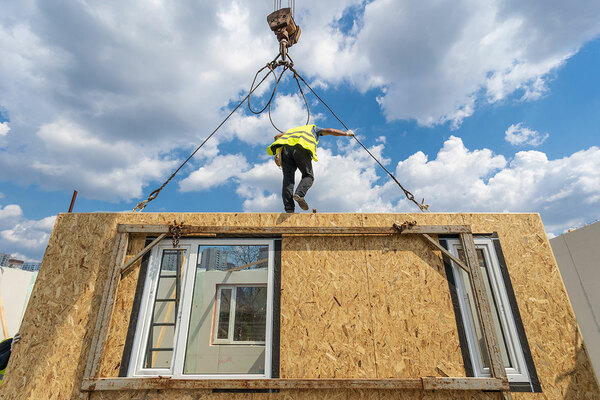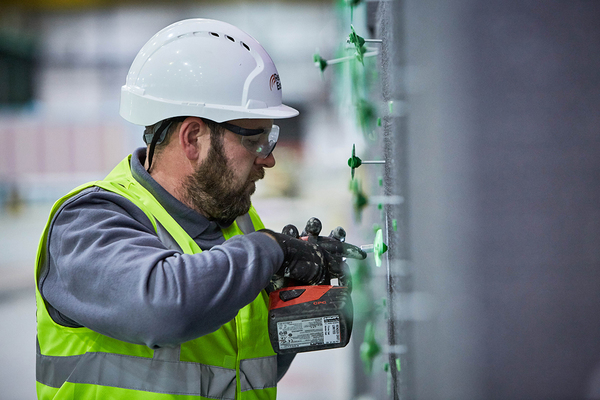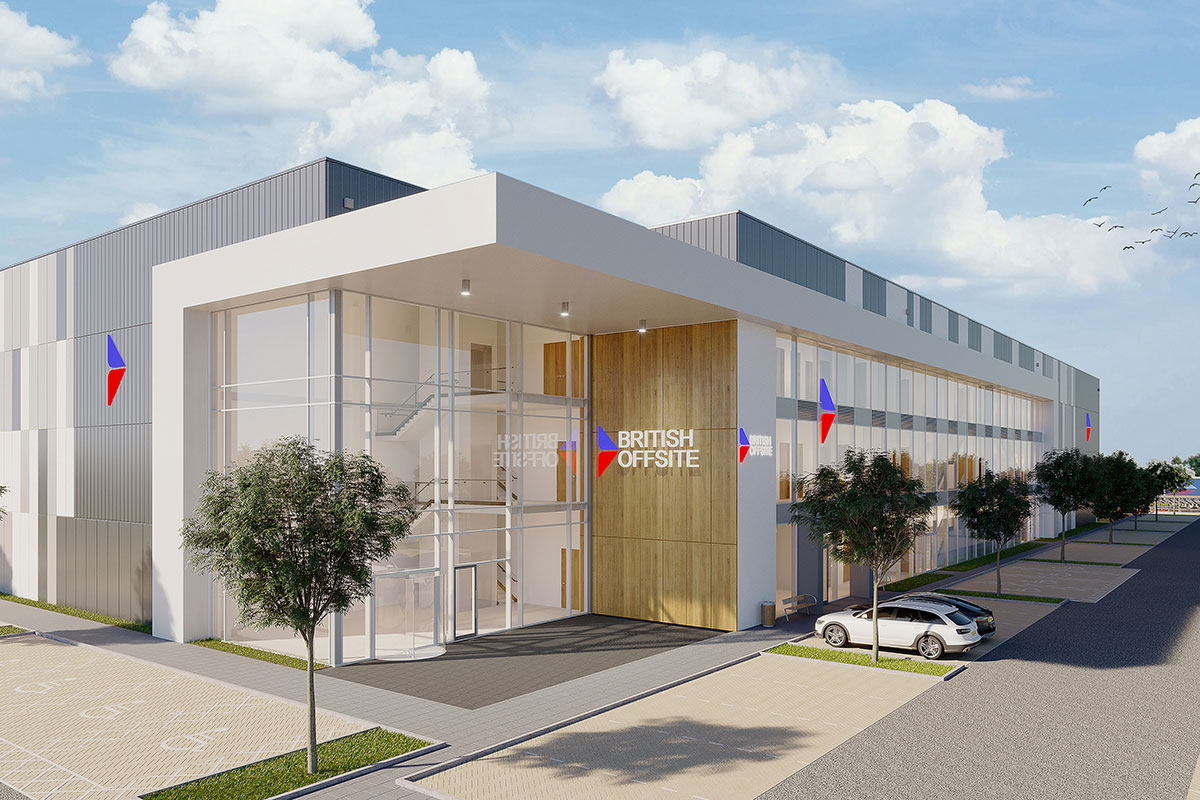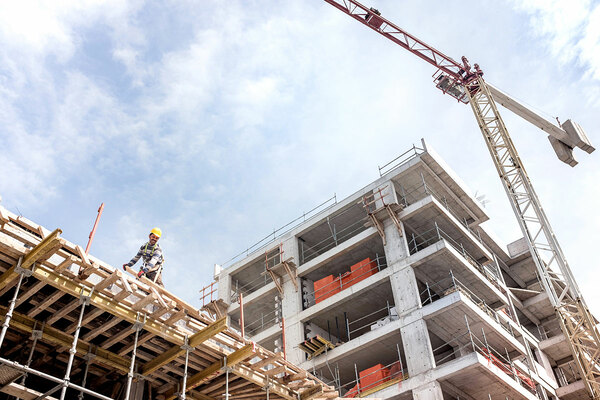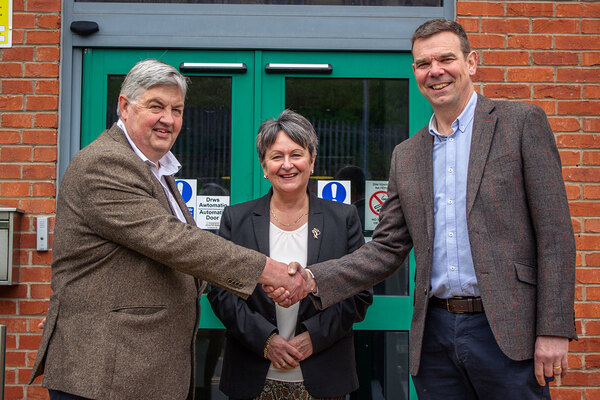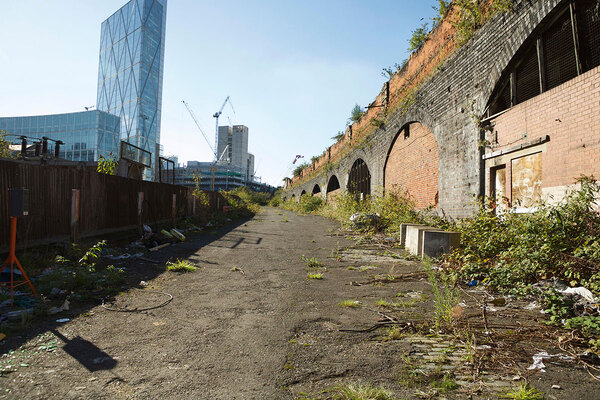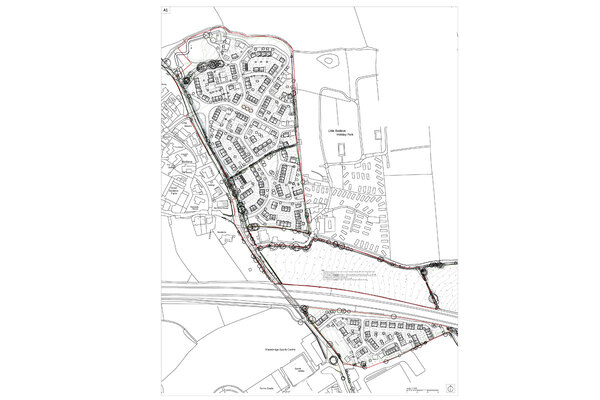You are viewing 1 of your 1 free articles

Chief executive of Watford Community Housing Trust
Our housing challenge demands more offsite manufacturing. Housing associations can lead this drive
At Watford Community Housing Trust, building offsite has helped us to overcome the challenges of the pandemic and keep meeting our social purpose. The UK government should help grow this sector, writes Tina Barnard
Amid shortages of skilled labour, rising material costs and a need for 345,000 new homes per year, it is a challenging time for those in the housing industry.
Indeed, with changes to building regulations indicating that new build homes must produce around 30% lower CO2 emissions than current standards and supply chain issues caused by the ever-present spectre of Britain’s exit from the EU, housing providers have had to adapt or die.
In order to manufacture housing in a sustainable and environmentally friendly manner, the UK housing sector must look to increasing the adoption of offsite manufacturing techniques and proactive partnership working.
At Watford Community Housing, these partnerships are integral to housing provision that is accurately tailored towards the specific needs of a particular area and offsite manufacture is playing a key role in addressing the desperate need for cost-effective, sustainable homes.
Back in 2018, working in partnership with the Hertfordshire Local Enterprise Partnership, Watford Community Housing led on forming a Hertfordshire-based consortium with the intention of educating and encouraging the use of offsite manufacturing to accelerate housing provision.
We invited companies to work with us in Hertfordshire, and after 15 expressions of interests we whittled them down to two construction specialists in Stewart Milne Timber Systems and Elements Europe.
Since then, the Hertfordshire consortium has grown to more than 20 members, including both housing associations and local authorities. At Watford Community Housing, we have utilised offiste manufacturing on more than 30 homes, with the express target of 50% of our developments to use offsite by 2025.
We’ve also seen the educational benefits of both offsite manufacture and partnership working come to the fore, as Stewart Milne has partnered with West Herts College to offer a new vocational apprenticeship programme in sustainable methods of construction.
“By constructing large elements of these homes in a fixed facility, onsite waste was all but eliminated and we greatly reduced onsite noise”
It’s our hope that the continued education in modern methods of construction will ensure that Hertfordshire has a skilled workforce that can employ these techniques more frequently in future.
Throughout the pandemic, our use of offsite manufacture has been key to continued development.
Factory automation meant that construction could continue at a time when COVID was making it difficult for traditional construction crews to continue working. Also, the precise nature of modular and timber frame builds meant that we could accurately forecast costs when additional raw materials would have proven expensive and difficult to obtain.
By constructing large elements of these homes in a fixed facility, onsite waste was all but eliminated and we greatly reduced onsite noise, which was no small thing as so many people were working from home.
Offsite manufacture will also prove a highly useful tool in complying with new government restrictions on CO2 emissions, as on average these homes outperform current building regulations on thermal efficiency by approximately 37%.
As of June 2020, the proportion of new homes built in the UK using the technique was estimated at somewhere between 6% and 10%, but over the coming decade I would expect this to grow quickly.
Economically we are facing skilled labour shortages, a rapidly expanding population and ongoing supply chain issues. These circumstances are almost identical to those that led to the explosion of offsite manufacture across the Nordic block.
“To meet the demand for new homes and comply with strict regulations around emissions, it is vital that UK housing providers follow in the footsteps of countries such as Sweden and Japan”
At least 45% of all housing in Sweden is now produced using some form of offsite manufacture. Its state mortgage provider, SBAB, predicts that Sweden will have solved its housing shortage inside of five years.
Japan, too, is manufacturing as many as 180,000 new modular homes each year, equivalent to roughly 20% of all new housing. Its use of modular building has proven so successful that they are even building the UK’s biggest offsite village – a development of more than 400 homes.
To meet the demand for new homes and comply with strict regulations around emissions, it is vital that UK housing providers follow in the footsteps of countries such as Sweden and Japan.
The partnership working needed to pull off such a feat actively benefits from the precision of offsite construction, which limits human error and ensures on-time, on-budget delivery of projects, as it is unaffected by weather variation or availability of labour.
Overall, offsite manufacture has proven a boon to Watford Community Housing Trust, fostering collaboration and enabling us to adapt to the problems created by the pandemic. In a UK housing market that is now intensely focused on the socially responsible construction of sustainable new homes, this can be no bad thing.
Tina Barnard, chief executive, Watford Community Housing Trust.
Sign up for our development and finance newsletter
Already have an account? Click here to manage your newsletters

